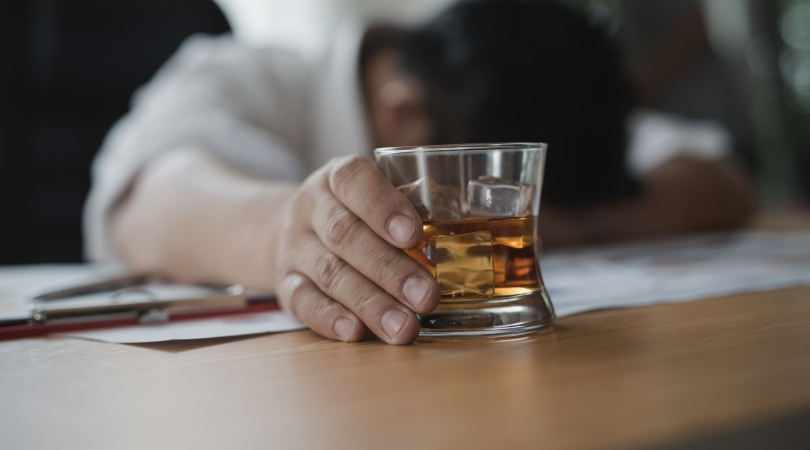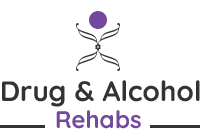Alcohol Treatment Guide
WRITTEN BY CAYLA CLARK, BA – APRIL 12TH, 2020
What is Alcohol Treatment?
Alcohol abuse and addiction are some of the most prevalent health-related threats to American society. It is estimated that upwards of 17 million adults throughout the United States have struggled with an alcohol use disorder at some point during their lives. Alcohol-related problems occur when an individual drinks too much and too often, and suffers personal consequences as a result. Fortunately, no matter how devastating an alcohol addiction has become, there is always help available.
Studies show that one-third of those who undergo comprehensive treatment for an alcohol-related disorder will cease showing symptoms after one full year. The vast majority of those who complete treatment and stay committed to a long-term aftercare program report that their symptoms are significantly reduced and that they no longer experience negative consequences associated with drinking.

Search For A Rehab Center Near You
Is Alcoholism Treatment Right for Me?
Because alcohol consumption is such a prevalent part of American culture, it can be difficult to determine whether or not your drinking habits have transitioned from essentially harmless to serious and potentially dangerous. If you are unsure as to whether or not you are struggling with an alcohol-related disorder, ask yourself the following questions:
- Have you attempted to cut down on your alcohol intake or tried to quit altogether, only to find yourself unable to stop drinking for any extended period of time?
- Have you suffered interpersonal consequences at the hands of alcohol, like strained relationships and problems at school or at work?
- Do you engage in risk-taking behaviors when drinking, like driving drunk or engaging in activities that you would normally avoid?
- Do you find yourself hungover or sick from drinking regularly?
- Do you feel anxious when you know that you won’t have access to alcohol?
- Have your loved ones expressed concern about your drinking habits?
- Have you switched up your friend group or the places you spend your time in order to make drinking more accessible and acceptable?
If you answered “yes” to one or more of these questions, the chances are that you are struggling with an alcohol abuse disorder of some degree. Even if you sincerely believe that your symptoms aren’t “that bad” or that your drinking isn’t doing harm to anyone but yourself, it is important to seek professional help as soon as you suspect a problem of any severity. Alcoholism is a chronic, relapsing brain disease – symptoms only get worse, never better.
Benefits of Alcohol Treatment
- Live life without having to pick up a drink
- No longer be the black sheep of the family
- Be there for your loved ones when they need you
- Choose sobriety over chronic alcoholism
- Wake up with eneregy and without a hangover
- Have a good time without having to drink
What to Expect From Alcohol Treatment
Because alcoholism is such a powerful and all-consuming disease, intensive and long-term care is almost always recommended. There are different levels of care available depending on the severity of the alcohol abuse disorder and whether or not additional services – like dual diagnosis treatment – are necessary. If you are unsure what level of care would best suit your specific needs, please reach out to us today. Our main priority is helping you find an alcohol treatment program that will pave the way for years of happy, fulfilling and meaningful recovery.
James R. McKay, PhD, published a study in the Journal of Substance Abuse Treatment titled, Continuing Care Research: What We’ve Learned and Where We’re Going. The study focuses on the importance of multi-level alcohol treatment, which generally includes alcohol detox, inpatient alcohol rehab and continuous aftercare. The study reads, “Results indicated that the continuing care condition produced better drinking outcomes out to 18 months and better marital adjustment out to 30 months, as compared to a no continuing care control condition. For example, those receiving RP averaged about 94% days abstinent between months 4 and 18 of the follow-up, compared to 82% days abstinent in the control condition, which indicated a 15% increase in days abstinent.” (O’Farrell et al., 1998). (1)

Find the Best Alcohol Rehab Center
Alcohol treatment will consist of alcohol detox, inpatient alcohol treatment, and a comprehensive, long-term aftercare program. Finding the right alcohol treatment center can seem overwhelming at first, seeing as there are so many potential options and so many varying levels of care. Fortunately, we are available to help you find the perfect fit for your personal needs and requirements.
We believe that alcohol treatment should be available to everyone that needs it, and that finding the right treatment center means that alcohol detox, inpatient rehab and aftercare will only need to be completed once in order for an individual to go on and lead a healthy, productive and alcohol-free life. Call us to get started on your own personal journey to sobriety.
References
- O’Farrell TJ, Choquette KA, Cutter HSG. Couples relapse prevention sessions after behavioral marital therapy for male alcoholics: Outcomes during the three years after starting treatment. Journal of Studies on Alcohol. 1998;59:357–370.
